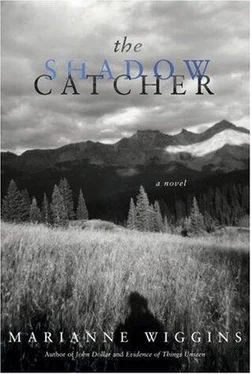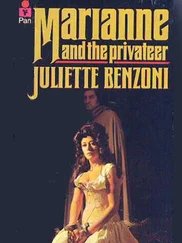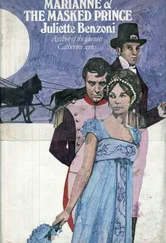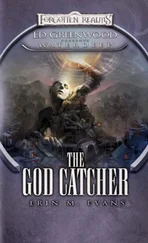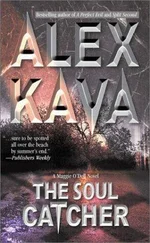
My father first went south because he had to — drafted at the start of World War II, he was posted to Ft. Lee, Virginia, where he met my mother, who was working at the commissary. I don’t know how he made that initial trip — by bus, or train — but he must have grasped the coincidence that his paternal grandfather, John Wiggins, the man in whose memory he had been named, had been conscripted into serving his own nation, The Union, and had donned its dark blue uniform and marched south into Maryland, into Virginia, where in 1865 a piece of Confederate lead lodged in his head and he bled out, perhaps in the very woods we passed. Two John Wigginses — two wars — two conscripted journeys from Pennsylvania to Virginia. That original John Wiggins’s Certificate of Discharge from Company E of the 179th Regiment of the Pennsylvania Volunteers in the War Between the States hangs in a place of pride in my California home, and it’s as much a work of art as any of my daughter’s fine art photographs. The penmanship alone is thrilling — to say nothing of the latent narrative the facts suggest. There he was — the first John Wiggins — in the final year of a brutal war, wounded within months of its termination, discharged because of injury, turfed out at Alexandria, Virginia, and paid in full on August 5, 1865. How I came to be in possession of this document — how my father came to be, before me — seems to me a kind of blessed wonder, a small miracle. It might have passed, unnoticed, into history’s dustbin, but it didn’t. Its survival, intact, its materiality, is a result of fragile circumstance, the fact that it exists is a surprise. When I moved to California from London, my possessions followed me by ship, through the Panama Canal — eighty-six cartons of books, their pages looking sadly foxed and faded in their new surroundings under southern California light. It was only in unpacking that I noticed spots of mildew inside the glass of the framed Certificate of Discharge. Recently I finally got around to cleaning it. I hadn’t held the document, itself, since I found it among my father’s things, several days after we buried him. I had forgotten what that feels like, the touch of century-old paper, like a weathered buckskin to the hand. The paper — its crispness reduced by age to velvet — has life. Even if nothing were written on it, it would breathe of something, have spirit — the way a fossil does. The size and color of my great-grandfather’s Certificate of Discharge from the Civil War reminds me of that sketch by Leonardo in the Queen’s Gallery in London — same size, same sandstone color, same sketching-in depiction of a larger landscape, same miniaturization of an overview of life. When I stare at it I have the sense of looking at a kind of panorama of his life, as if this were a map of him. A map of part of him. On the back of the document on its shadow side, the side I hadn’t seen for all the years that it was framed, is another map, of sorts, a printed form entitled OATH OF IDENTITY, left blank. Its print runs perpendicular to the print on the other side, and it takes up only one third of the page, the suggestion being that it will form a kind of title page when the document is folded into thirds, the way certain legal summonses today fold up into themselves inside a single slim blue outer page. I believe the reason the OATH OF IDENTITY is blank is because my great grandfather must already have been known to the discharging officer or supplied that officer with some sort of irrefutable proof — possibly a photograph — that he was, in fact, the selfsame John Wiggins that he claimed to be. The only other piece of my great-grandfather’s map I own is, in fact, a photograph that’s come down to me on trust. By which I mean — I have no proof it’s him, only a verbal family legend that the people in this photograph are, indeed, the people I’ve been told they are — John Wiggins and his scrappy little soulmate Mary. Another John & Mary. And although this earlier John Wiggins bears no ancestral resemblance to the later John, my father — (except for those very deep-set eyes) — and although he assembles himself like a Puritanical pill, she looks like a whole buckboard o’ fun. Mary Book was her name — (and how nice for a writer to claim a Book on one limb of the family tree). He’s got his heels locked, hands locked in readiness for prayer. She’s got that one foot inchin’ forward, that one hand on her hip, that jutting elbow and those tinted glasses. Mammy Yokum , yes! indeedy; thin piss yoked to vinegar. This is the sum of what I know of her, this picture. And that she birthed at least four children. Details of women’s lives are usually only tangential in historical records, reflecting attachments to men and the labors of maternity. When I was teaching myself to use internet genealogy sites to write the Edward Curtis novel, I used my own family as the prototype and tried to find all I could about this John and this Mary because Curtis’s own father was my great-grandfather’s contemporary and had fought beside him in the Civil War. After trial and error I stumbled on this John and this Mary in the 1900 U.S. census, where there was nothing much to learn about my great-grandmother, not even her maiden name, and where John’s occupation is listed as FARMER, which is only a mere part of how he occupied himself, if family legend is to be believed. Family legend, as it came to me, is that John took a rebel bullet to the head after which he saw God , returned to Pennsylvania and started preaching his own fellowship, founding his own church. This may or may not be true but for the purpose of the Curtis novel it proved providentially insightful because by the time Edward was born in February 1868, his own father, Johnson Asahel Curtis, also had returned home from the Civil War, on a veteran’s disability, to become a minister . I had to wonder — how many of them were there, these ministering farm boys who joined up, went off, saw the South, saw death and then subsequently thereafter saw God ? There’s something of the WAKAN TANKA, The Great Mystery, in war’s power to make braves of boys and wise men of certain braves. But if war makes the argument for peace for some, it makes the argument for sanctioned killing for far more and for every two men like John and Johnson Curtis who left the battlefield as proselytes promoting the word of God according to the Bible, there were hundreds more who left the battlefield better trained for the burgeoning killing fields out West. Whereas my great-grandfather had a reputed genius for threatening to invoke a wrathful God against transgressions that included imbibing fermented beverages, desiring universal suffrage and utilizing the lascivious comforts of indoor plumbing, Johnson Curtis appears to have been a sort of semi-pious parish journeyman, not particularly inspired by good works and The Good Book, but on the side of angels, on the whole, for want of someone of a finer cloth way the hell out there where the Curtises resided in Whitewater, Wisconsin. In 1874 he landed the job of circuit preacher for a region in the upper Minnesota lake country and took young Edward, then age six, with him on his rounds performing marriages and baptisms and, of course, last rites and funerals. Johnson’s health was never good after the war and he depended on his young son to manage the more arduous labors of their travels — harnessing the horses, rowing the canoe, foraging for food and wood and making camp. I’ve thought a lot about that young boy Edward — how the physically adept boy foreshadowed the physically courageous man. He was an engine of activity, as a man, running up Mt. Rainier, kayaking the Inuit coast, dogging Lewis and Clark’s trail down the Columbia. He was Huck Finn and Tom Sawyer rolled into one and what he lacked in formal schooling he made up for in raw strength and adaptive cunning. Legend has it that he built his first camera when he was twelve years old from a partial lens his father brought home from the Civil War — but how a complex and sophisticated piece of glass landed in Johnson Curtis’s forlorn Union Army bindle begs anybody’s guess. The story sounds like vintage Curtis, the kind of tale he loved to tell about himself when he was hustling his prospective buyers back East on the lecture circuit. He may always have had that mid-westerner’s braggadocio when he was in the company of Roosevelt and Harriman and Morgan, but on his own on horseback, scouting a location, he was in his element, physically at ease and physically commanding.
Читать дальше
